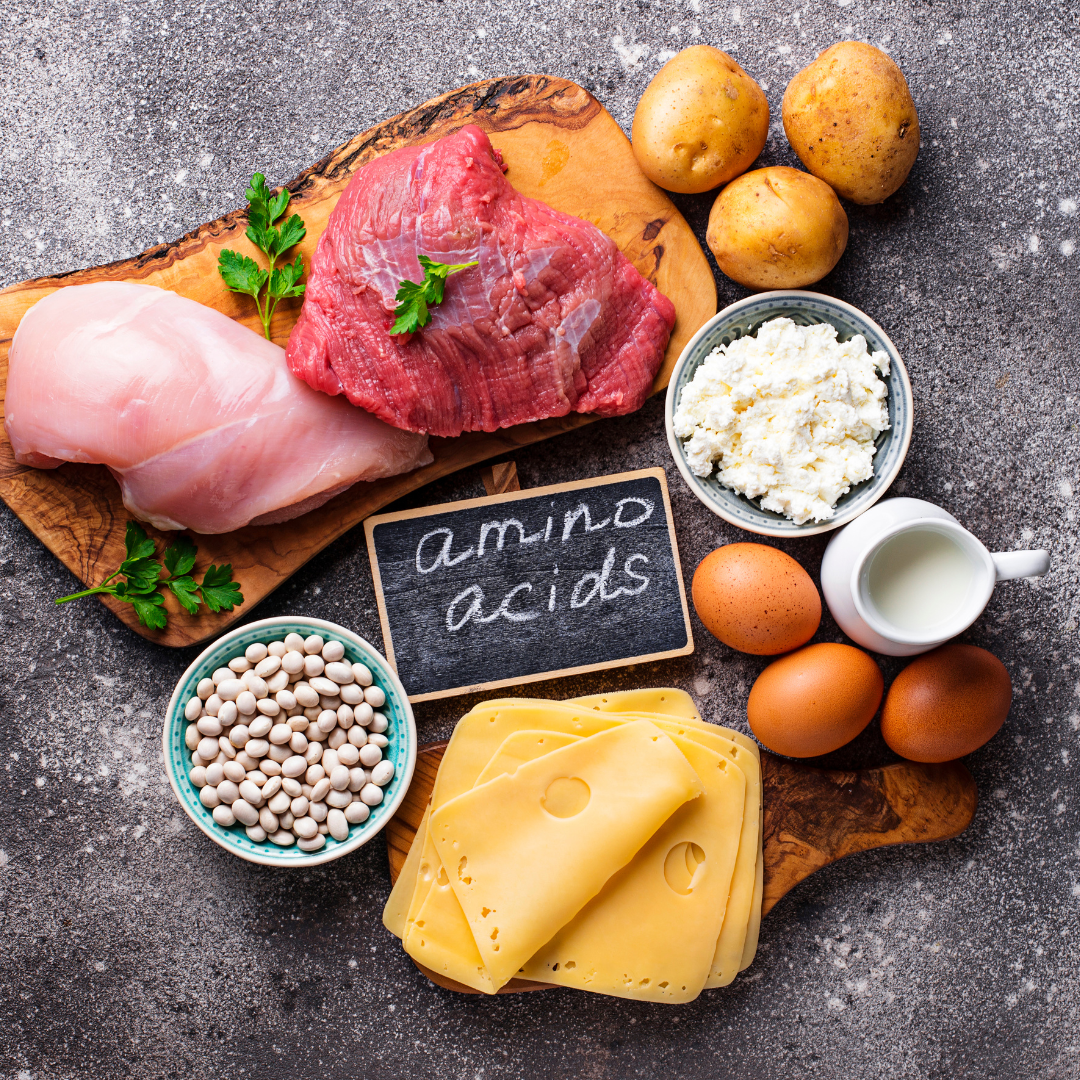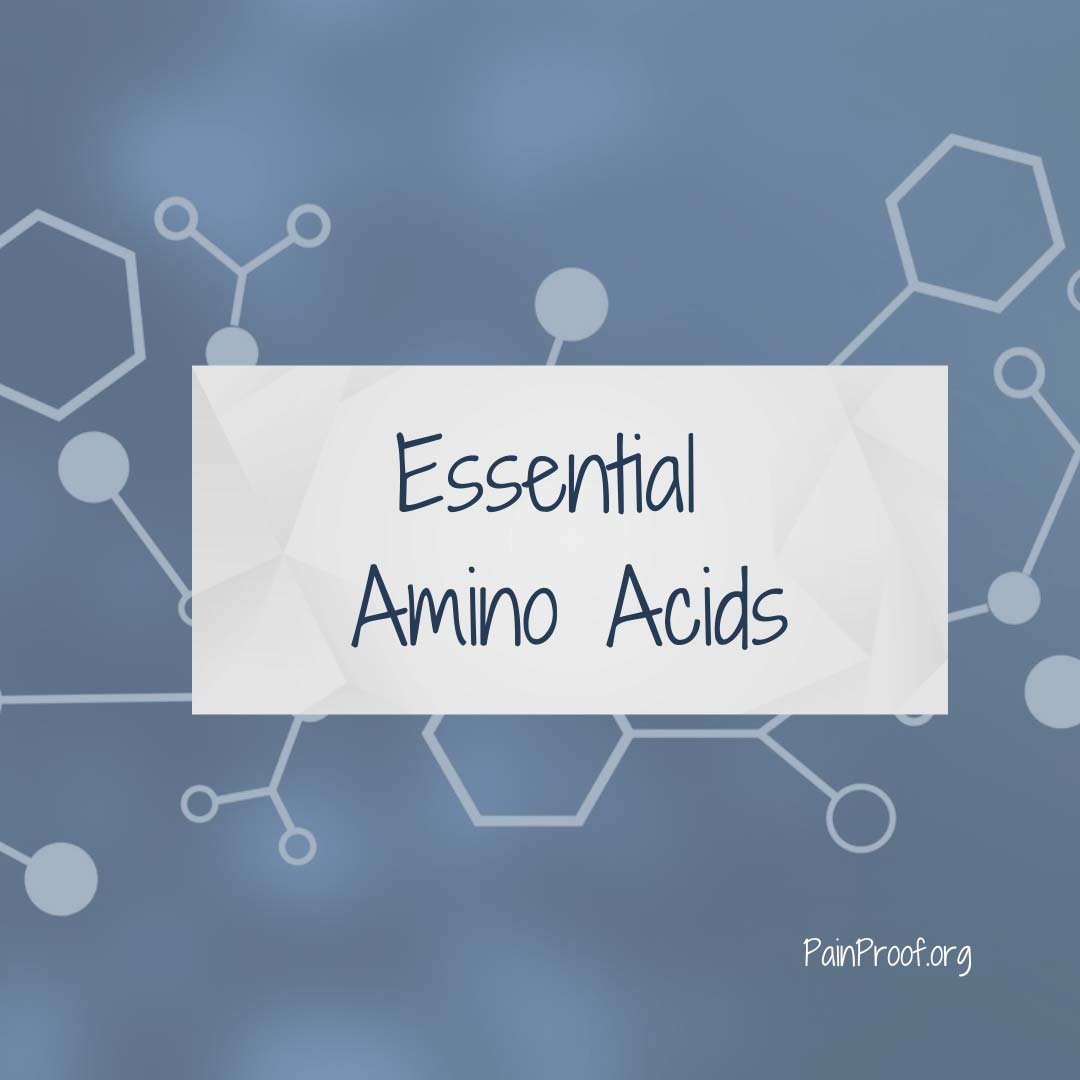Essential amino acids are in some of the powders to improve our athletic performance. Amino acids are the foundational proteins from which we are built.
Essential amino acids are in some of the powders to improve our athletic performance. But do you need them, and how often should you be using them?
Amino acids are the foundational proteins from which we are built. We need to get them from our food, but unlike the non-essential amino acids, we can not make these from intermediate metabolites (the byproducts from steps in the breaking down of food). Without amino acids, we lack the ability to form quality hormones and neurotransmitters, create and keep healthy skin/bone/hair health, keep our muscles healthy, and more. Although there are hundreds of amino acids found in nature, only about 20 amino acids are needed to make all the proteins found in the human body – 9 of which are vital to survival.
Those 9 essential amino acids are:
-
Histidine
-
Isoleucine
-
Leucine
-
Lysine
-
Methionine
-
Phenylalanine
-
Threonine
-
Tryptophan
-
Valine
Our body needs each of these in specific amounts and for specific reasons. The following is a very brief overview. (*please do not supplement any of these without direct advice from your healthcare practitioner)
-
Histidine – helps with growth and repair of damaged tissues, making blood cells, helps protect nerve cells, helps create histamine. Histidine supplements may help eczema.
-
Isoleucine – assists with muscle metabolism, immunity, growth, protein metabolism, fatty acid metabolism and glucose transportation. Supplementing with isoleucine during illness may speed up recovery.
-
Leucine – impacts the general health of muscles and the prevention of muscle breakdown. It also assists with blood sugar regulation in the liver and the body’s ability to heal after injury. Supplementing leucine may help healing skin and bones.
-
Lysine – helps produce carnitine (a nutrient responsible for converting fatty acids into energy), helps the body absorb calcium, form collagen. Supplementing L-Lysine may help with cold sores (HSV) and osteoporosis.
-
Methionine – an antioxidant and used to prevent liver damage in acetaminophen poisoning. It is a precursor (needed for making) cysteine and taurine. Helps muscle repair after exercising. Methionine is found in meat, fish and dairy.
-
Phenylalanine – helps with the production of epinephrine and norepinephrine. Helps neurotransmitter signal health, reducing hunger, maintaining awaken state/alertness, and improving memory. Phenylalanine is found in animal protein.
-
Threonine – used to form glycine. Helps with fat metabolism, supports digestive function, collagen production, prevents neurological dysfunction, supports immune system, and helps prevent unwanted muscle contractions (via glycine). Found in animal products.
-
Tryptophan – used to make melatonin and serotonin and produce niacin (in liver). Supplementation may help regulate sleep, mood, appetite, and pain. In order for tryptophan to be converted into niacin, we need iron, riboflavin, and B6 from our diet. Tryptophan is found in animal products.
-
Valine – important for muscle growth, tissue repair, mental focus and emotional calm. Found in meat, fish and dairy.
The easiest way to make sure you have all of the essential amino acids is to eat ample animal protein daily – 1 gram/pound of ideal body weight. The RDA recommendations of 0.6 – 0.8 grams/kg of body weight falls short and is outdated. If you are looking into supplementing with amino acids, knowing which option to use is key – BCAAs or EAAs.
Are BCAAs and EAAs the same thing?
Short answer – Partially.
BCAAs are branched chain amino acids. EAAs are the 9 essential amino acids. BCAAs contain 3 of the EAAs.
BCAAs contain varying ratios of leucine, isoleucine, and valine. They are used primarily to improve body composition in the presence of strength training. EAA supplementation is used to supplement an animal protein-deficient diet and also can be used as an afternoon pick-me-up in place of caffeine.
One common mistake I see is relying on EAAs rather than dialing in your protein needs. EAAs do provide all of the nine essential amino acids but lack all of the other enzymes, nutrients, minerals, vitamins, and cofactors of actual food. Real food always wins over supplemental form. Supplements are designed to assist us in what a whole food nutrient-dense diet is lacking, to help us combat an illness or injury, or to support the healing of an autoimmune condition. Choose food first, and supplement sparingly (& with testing).
Bottom line: If you are meeting your protein goals, use BCAAs. If you are short on animal protein, use EAAs.
References:
Biochemistry, Essential Amino Acids
Isoleucine Plays an Important Role for Maintaining Immune Function
What are Leucine and Isoleucine?
Methionine: Functions, Food Sources, and Side Effects
What to know about phenylalanine
Physiological Functions of Threonine in Animals: Beyond Nutrition Metabolism


Comments